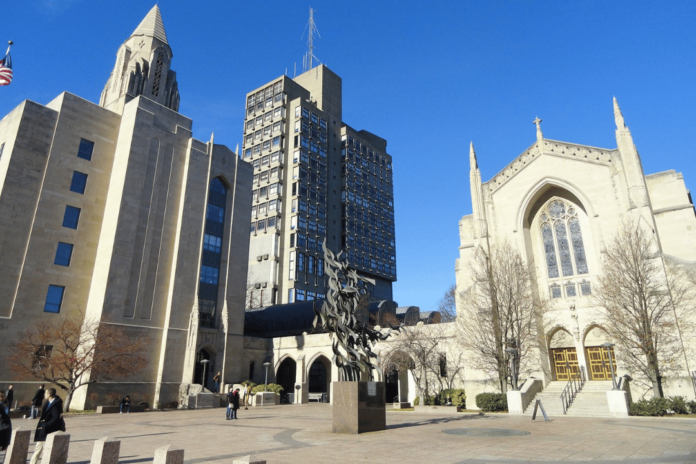In the aftermath of George Floyd’s tragic murder in May 2020, the city of Boston, a historical battleground for both abolitionists and racial tensions, experienced a surge in protests and demands for action against campus racism. Boston University responded dramatically by recruiting renowned scholar Ibram X. Kendi to lead a new Center for Antiracist Research. This initiative aimed to address racial inequity and injustice through various programs and degrees. However, three years later, the center finds itself downsizing amid financial, management, and focus-related concerns.
The Rise and Fall of the Boston University Center:
Boston University’s Center for Antiracist Research was established with ambitious plans to tackle racial injustice and inequity. Dr. Ibram X. Kendi, the driving force behind this endeavor, envisioned a bright future. The center’s mission was to “solve seemingly intractable problems of racial inequity and injustice.” They planned to offer undergraduate and graduate degrees in antiracism, and millions of dollars flowed in from supporters within months.
Fast forward to the present, and the center has undergone significant downsizing. More than half of its 36 employees were recently laid off, and its budget was halved. The promised degree programs have not materialized, and “The Emancipator,” the center’s news site, is no longer partnered with The Boston Globe. While some of these changes can be attributed to shifting public interest and conservative opposition, deeper concerns about management and leadership effectiveness have also arisen.
Questions About Leadership and Management:
One of the core issues surrounding the center’s troubles is whether Dr. Kendi, despite his fame and academic prowess, was suited to lead an organization of this magnitude. Before this role, he had no experience running an organization of comparable size. Boston University has initiated an inquiry into staff complaints, which encompass management culture, faculty and staff experiences, and grant management practices.
Dr. Kendi, to secure the center’s future, made the painful decision to reduce its size and mission, even though it is currently financially stable. The center boasts an impressive $55 million in donations and a substantial endowment. However, former staff and faculty members argue that unrealistic expectations, the rapid influx of funds, and the pressure to produce quickly contributed to the center’s problems. Some have also criticized Dr. Kendi’s leadership style, describing it as imperious.
Center’s Output and Productivity:
Critics within and outside the center have questioned its output relative to the substantial funding it has received. They argue that the center’s outputs have been disproportionately small about its financial resources. Saida U. Grundy, a Boston University sociology professor and former affiliate of the center, noted, “Commensurate to the amount of cash and donations taken in, the outputs were minuscule.”
The Changing Landscape of Antiracism:
Dr. Kendi’s work has not been without controversy. His assertion that there is no middle ground on race, that everyone is either racist or antiracist, and his attribution of all disparities in Black outcomes to racism have sparked criticism from conservatives, including bans on his books in some states. The fundraising environment for the center has also evolved since 2020, making it challenging to sustain initial levels of support.

The Center’s New Direction:
To adapt to these challenges, the Center for Antiracist Research is undergoing a major pivot. Dr. Kendi envisions a unique fellowship program for antiracist intellectuals who will be in residence at the university for nine months. These scholars will engage in public events while conducting their own research. This new model reflects a commitment to the center’s long-term sustainability.
Dr. Kendi’s Expanding Portfolio:
While overseeing the center, Dr. Kendi has expanded his influence beyond academia. He has authored children’s books like “Antiracist Baby” and “How to Be a Young Antiracist,” as well as a guide for parents titled “How to Raise an Antiracist.” His production company, Maroon Visions, is involved in an ESPN+ series on racism in sports. He hosts a podcast, appears as a commentator on TV, and continues to teach at Boston University.
Academic Criticisms:
In academia, where popular success often invites scrutiny, Dr. Kendi’s work has faced criticism. Some scholars question its academic rigor, while others worry about the potential influence of major donors who helped establish the center. Critics argue that the university’s decision to bring in Dr. Kendi was a substitute for addressing specific student complaints, such as concerns about the campus police force and faculty diversity.
Challenges with Grants and Donors:
The center’s management of grants has come under scrutiny, with allegations of conflicts of interest and misleading promises to donors. Some believe that donor interests may have influenced the center’s direction, potentially sidelining community-based initiatives. The participation of the CEO of Vertex Pharmaceuticals in a center conference raised questions about the influence of corporate donors.
Boston University’s Center for Antiracist Research has faced challenges and changes since its inception in the wake of George Floyd’s murder. While initially met with enthusiasm and substantial funding, the center has encountered financial, management, and focus-related issues. Dr. Kendi’s leadership style and expanding portfolio have also drawn criticism.
As the center undergoes a significant transformation, it remains committed to its mission of combating racial inequity and injustice. The evolving landscape of antiracism, coupled with internal and external pressures, underscores the complexities of addressing systemic racism in contemporary society. The outcome of Boston University’s inquiry and the success of the center’s new fellowship program will shape its future impact in the fight against racial injustice.





